A Beginner’s Guide to the Mediterranean Diet for Weight Loss
By Mediterranean Living
Updated September 5, 2024
Embark on a culinary adventure with our Beginner’s Guide to the Mediterranean Diet for Weight Loss! Discover the vibrant and healthy flavors of the Mediterranean region as you explore a variety of nutritious and delicious foods and mediterranean diet recipes for weight loss that will help you lose weight.
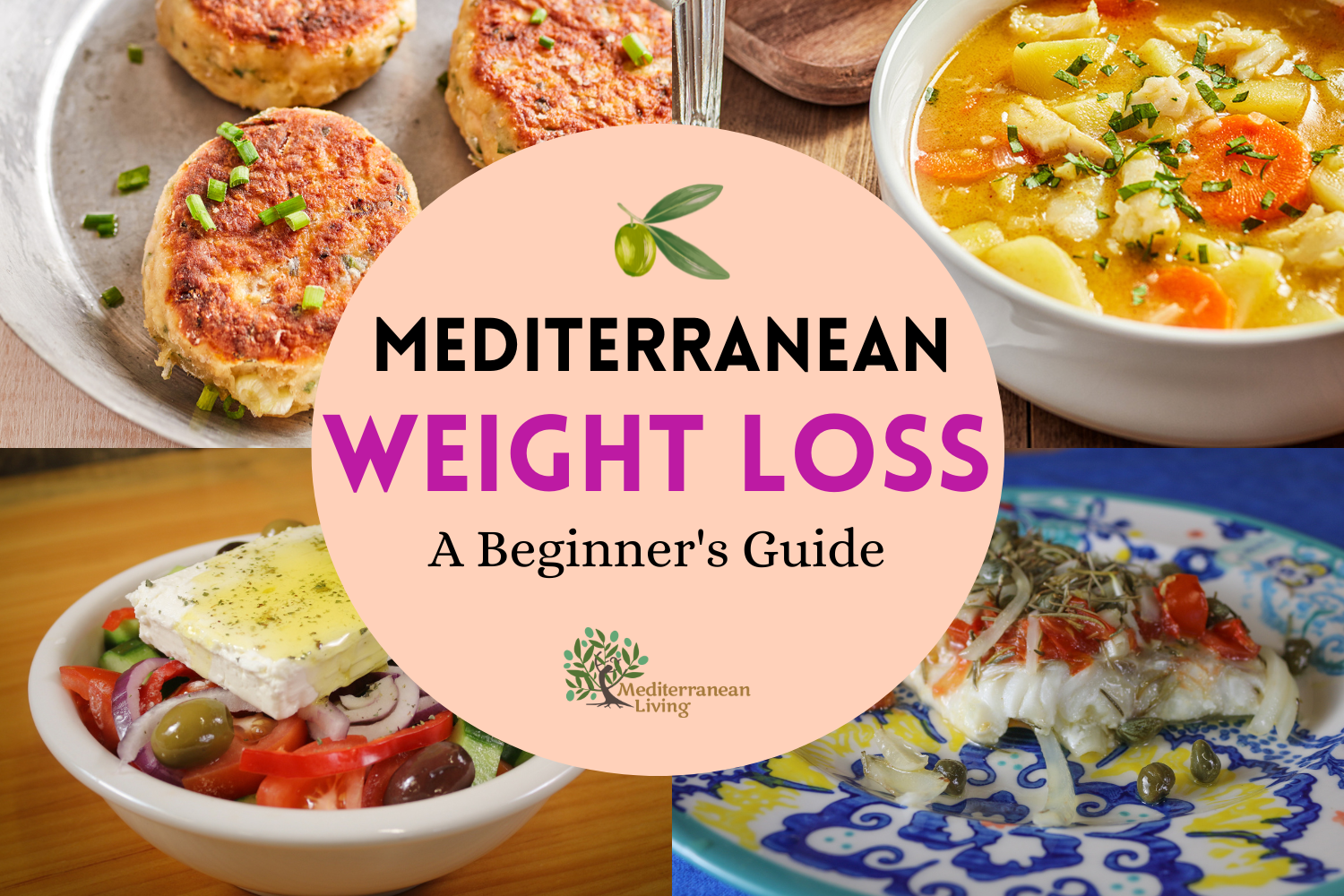
With simple tips and tricks for incorporating the Mediterranean lifestyle into your daily routine, this guide is the perfect starting point for anyone looking to improve their health and enjoy the pleasures of food at the same time. Get ready to embrace a new way of eating and living that will leave you feeling energized and revitalized!
Each year, millions of people plan to lose weight, and it’s one of the commonest new year’s resolutions. Yet most weight loss plans fail. Physical activity levels, genes, sleep, metabolism, and your environment also contribute to your relative body weight. But for many people, successful weight loss begins with a safe, sustainable, and effective eating plan that supports their goals.
The Mediterranean diet is a timeless approach to healthy eating that was first observed among the Ancient Greeks and other cultures surrounding the Mediterranean Sea. For six consecutive years, health and nutrition experts have ranked the Mediterranean diet as the best diet overall.
Additionally, the Mediterranean diet was ranked one of the best for diabetes, heart health, and weight loss. Following the Mediterranean style of eating may not yield the fasted results, but it’s a safe, sustainable eating plan that’s varied and delicious. The large range of tasty meals means you are more likely to stick to it in the long run, which can help you manage your weight sustainably.
Here’s more about the Mediterranean Diet for weight loss, along with tips for success and a free 3-day meal plan to help you get started with Mediterranean Diet recipes for weight loss.
What is the Mediterranean Diet?
The Mediterranean diet is the ancient eating patterns of people surrounding the Mediterranean Sea such as those in Greece, Spain, Italy, Turkey, France, Portugal, Egypt, Morocco, and Syria. It’s a plant-rich diet focused on fresh seasonal produce, homemade meals, communal eating, and being physically active.
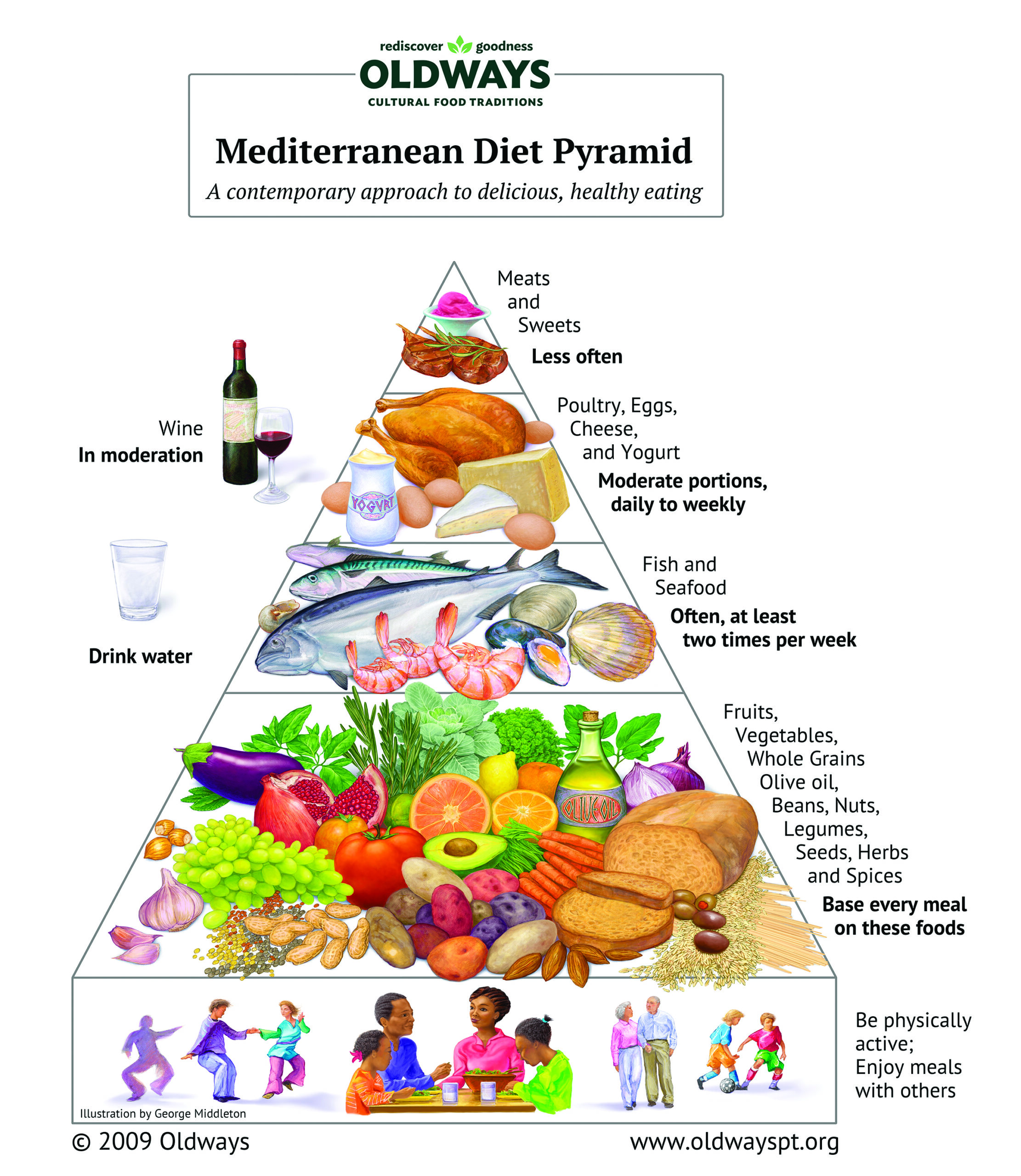
Courtesy of Oldways
The Mediterranean diet pyramid is a pictorial guide to help you understand the diet. No foods are forbidden, but foods such as fruits and vegetables, whole grains, legumes, nuts, and healthy oils like olive oil are to be eaten daily. You can consume fish and dairy in smaller quantities. Red meats like beef, saturated fats like lard and butter, and sweets or added sugars should be eaten occasionally in this diet.
The pyramid’s base rests on being physically active and sharing your meals with others in a communal setting. And you can drink red wine along with your meals if you wish to.
How effective is the Mediterranean diet for weight loss?
Current evidence suggests the Mediterranean diet can be effective for weight loss and can help regulate blood sugar too. In 2010, researchers conducted a 12-month weight loss study on 259 overweight people with diabetes.
Participants were placed on three different diets: the traditional Mediterranean diet, a low-carb version of the Mediterranean diet, and the American Diabetic Association (ADA) diet.
After a year of these diets and 30–45 minutes of weekly exercise, the ADA group lost an average of 17 pounds (7.71 kg), the traditional Mediterranean group 16 pounds (7.26 kg), and the low-carb Mediterranean group lost 22 pounds (9.98 kg).
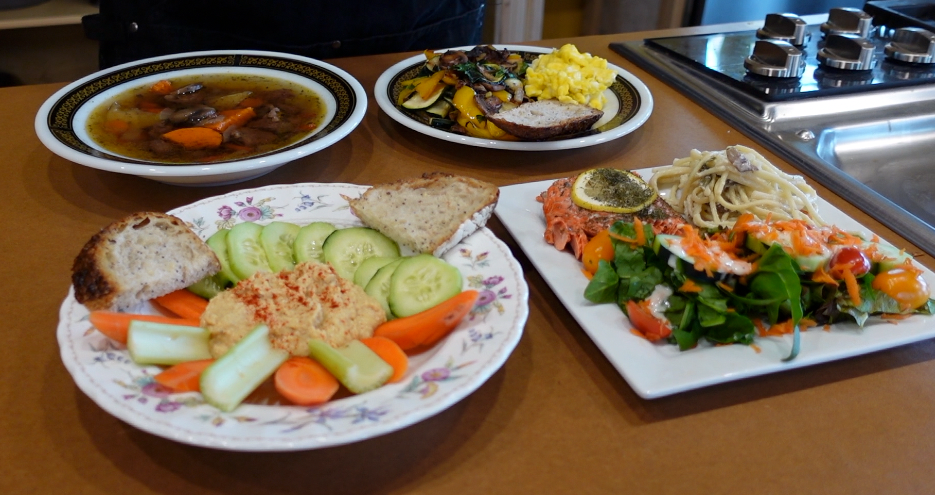
Examples of Mediterranean Diet Meals
People who followed the traditional and low-carb Mediterranean diets were more likely to lose weight than the ADA.
Another study comparing the Mediterranean diet with the ketogenic diet found both diets were good for people with diabetes and losing weight. But the Mediterranean diet was easier to stick to in the long run.
The Mediterranean diet also helps you keep the pounds off once you reach your desired weight.
The foods you need for the Mediterranean diet
Mediterranean Diet recipes for weight loss are best cooked at home. Having the right ingredients in your pantry and fridge can make the difference between choosing a healthy salad or ordering another burger.
Stocking up on the right foods can also make it easier to stick to a diet plan and help you reach your goal sooner. Here are some of the foods you need for the diet, split into various groups.
Whole Grains
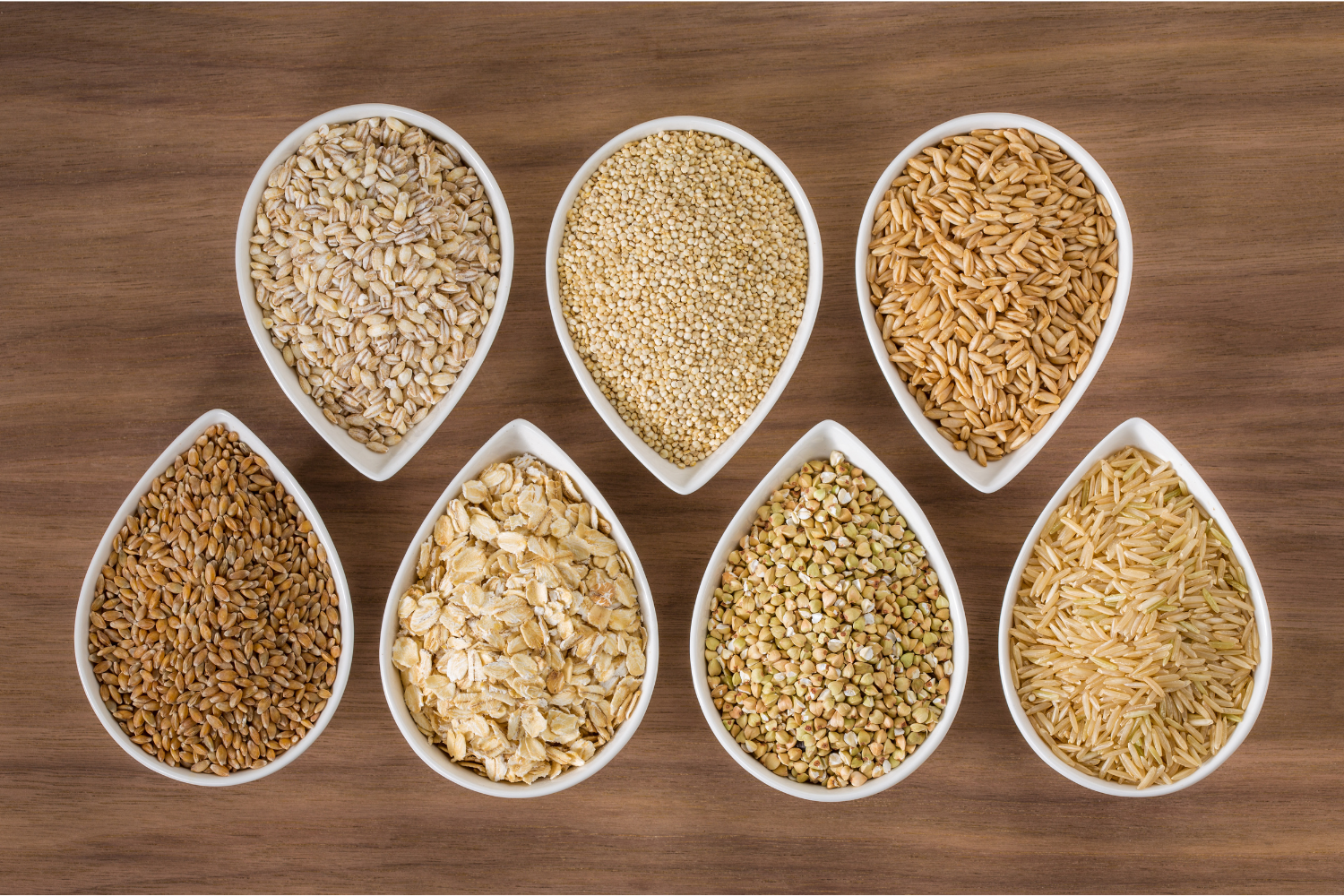
Grains are a rich source of fiber and carbohydrates. Unlike refined grains that have been stripped of some layers, retaining only their endosperm, whole grains have their endosperm, germ, and bran intact. This makes them more nutritious and less likely to spike your blood sugar. Whole grains also contain more fiber, which aids digestion and helps you feel full.
Some whole grains you can explore include:
- Rye
- Teff
- Oats
- Rice
- Fonio
- Wheat
- Barley
- Quinoa
- Millets
- Sorghum
- Triticale
- Amaranths
Oils
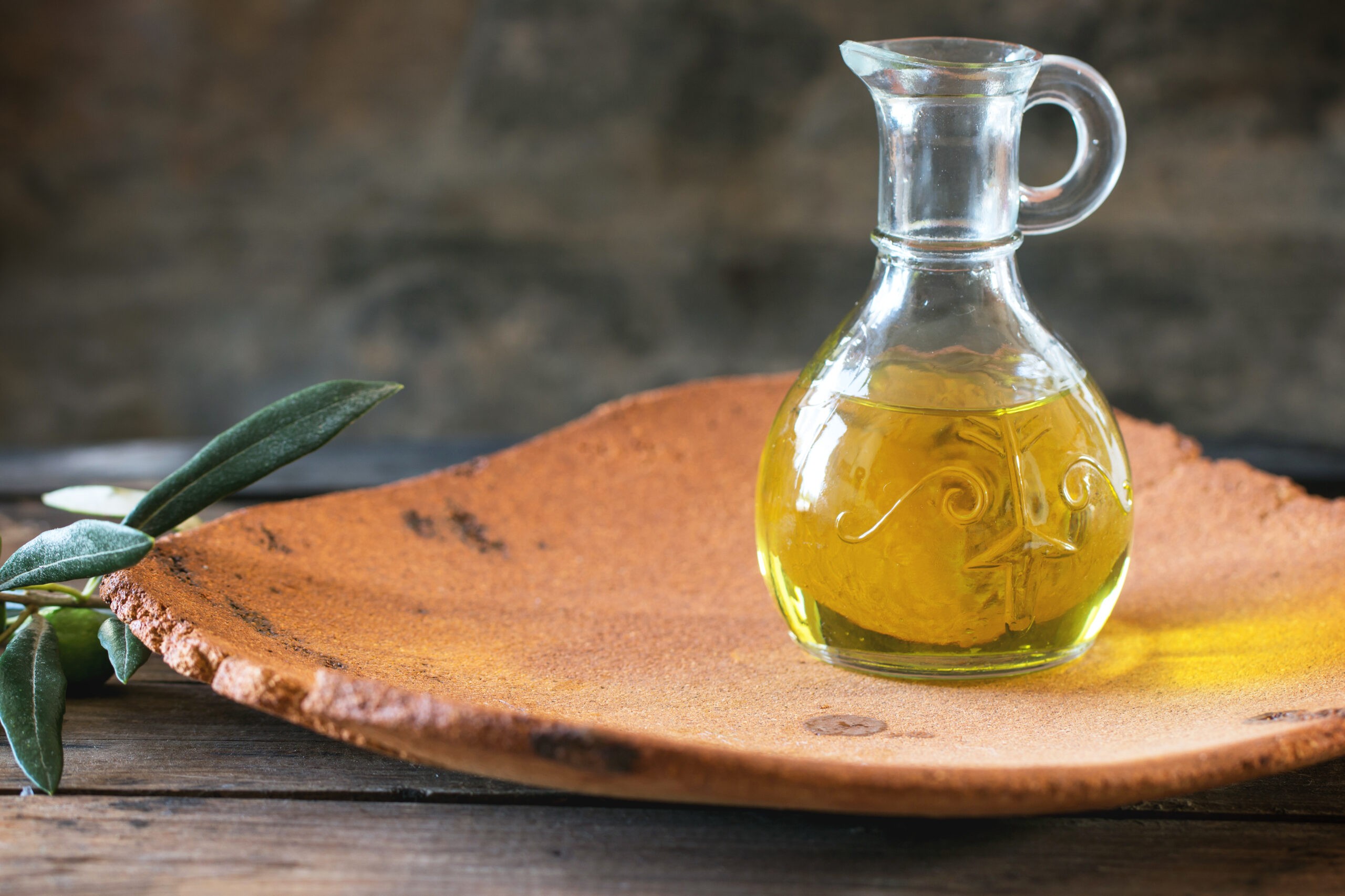
Oils add flavor and color to your meals. But they have also been linked with excess calories and a higher risk of heart disease, especially when they contain saturated fat.
The Mediterranean diet promotes the use of heart-healthy monounsaturated and polyunsaturated oils These oils, such as olive oil, help to improve cardiovascular health by reducing low-density lipoprotein and total cholesterol.
Other oils that you can use in Mediterranean diet recipes for weight loss include:
- Soy oil
- Fish oil
- Olive oil
- Peanut oil
- Almond oil
- Avocado oil
Legumes and Nuts
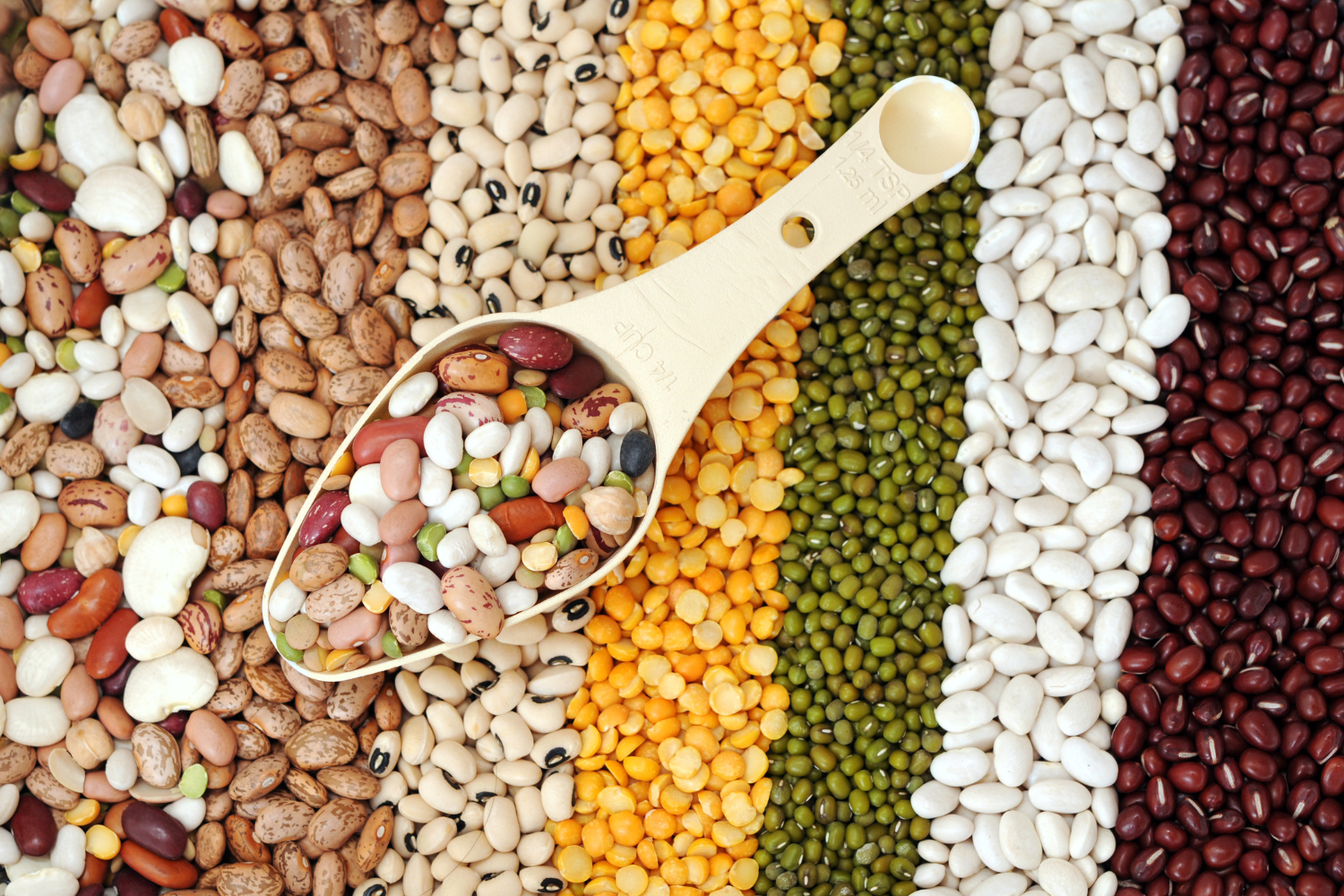
Legumes—sometimes called pulses when dry—are a rich source of protein, fiber, carbohydrates, vitamins, and minerals. You can eat legumes regularly while following Mediterranean diet recipes for weight loss.
Here are some legumes you can eat regularly:
- Lentils
- Peanuts
- Chickpeas
- All types of beans
Fruits
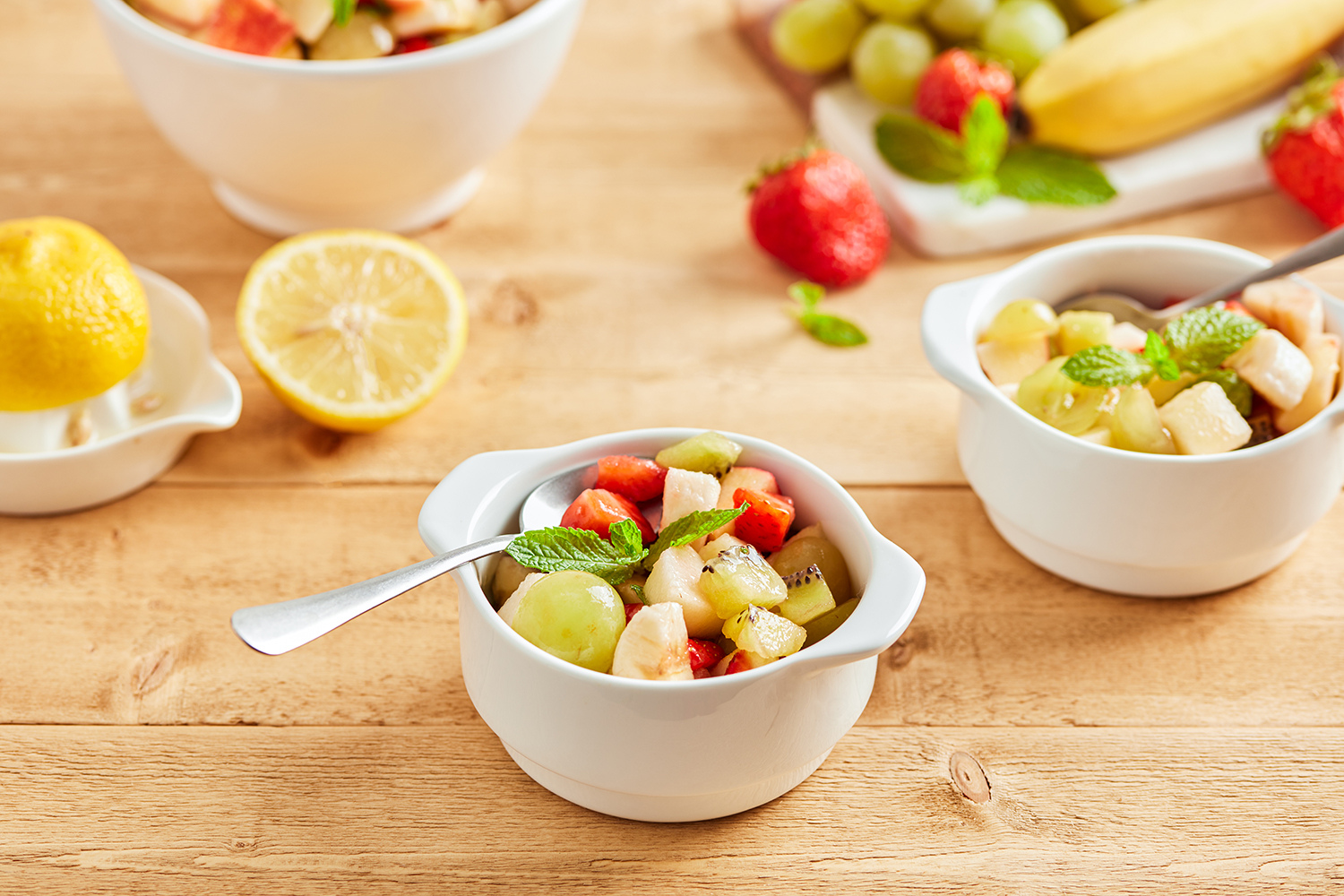
While following the Mediterranean diet, you can eat fruits and vegetables in abundance. Fruits and vegetables contain antioxidants, vitamins, minerals, and fiber. They also contain helpful compounds called phytochemicals that help reduce inflammation, fight cancer, and support proper organ function.
You can enjoy different fruits such as:
- Figs
- Dates
- Pears
- Apples
- Melons
- Grapes
- Peaches
- Oranges
- Bananas
- Strawberries
- Watermelons
And vegetables to eat include:
- Kale
- Carrots
- Lettuce
- Onions
- Turnips
- Broccoli
- Cabbage
- Tomatoes
- Beet roots
- Eggplants
- Cucumbers
- Bitter gourd
- Cauliflowers
- Brussel sprouts
Herbs and Spices
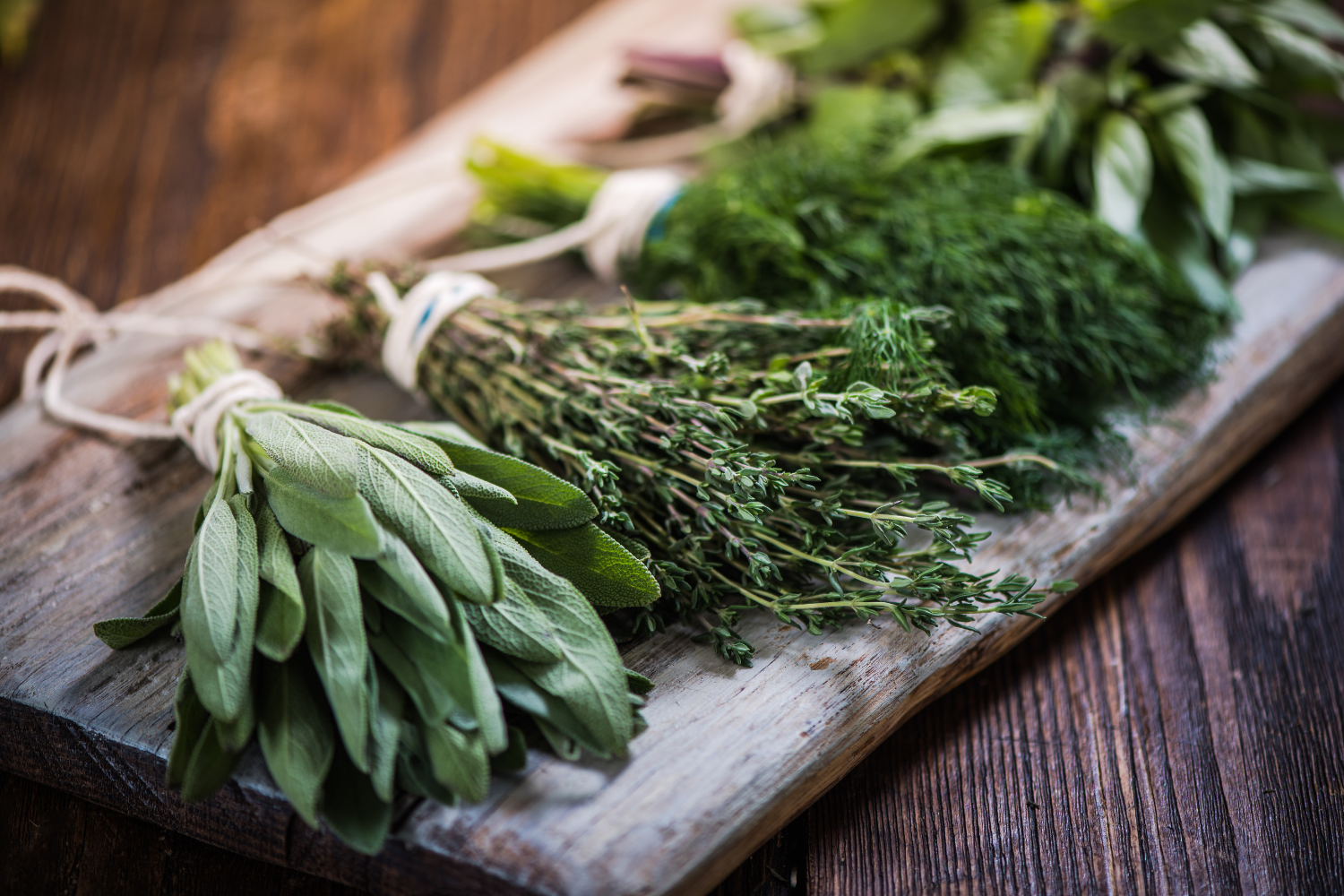
Herbs and spices are essential in the Mediterranean diet. They don’t provide significant calories, but herbs and spices can enhance the flavor and aroma of your meals. Many of them also contain compounds like flavonoids, which help your body fight diseases and reduce inflammation.
Examples of herbs and spices include
- Mint
- Sage
- Basil
- Cumin
- Thyme
- Cloves
- Bay leaf
- Turmeric
- Oregano
- Lavender
- Coriander
- Black pepper
Fish and Seafood
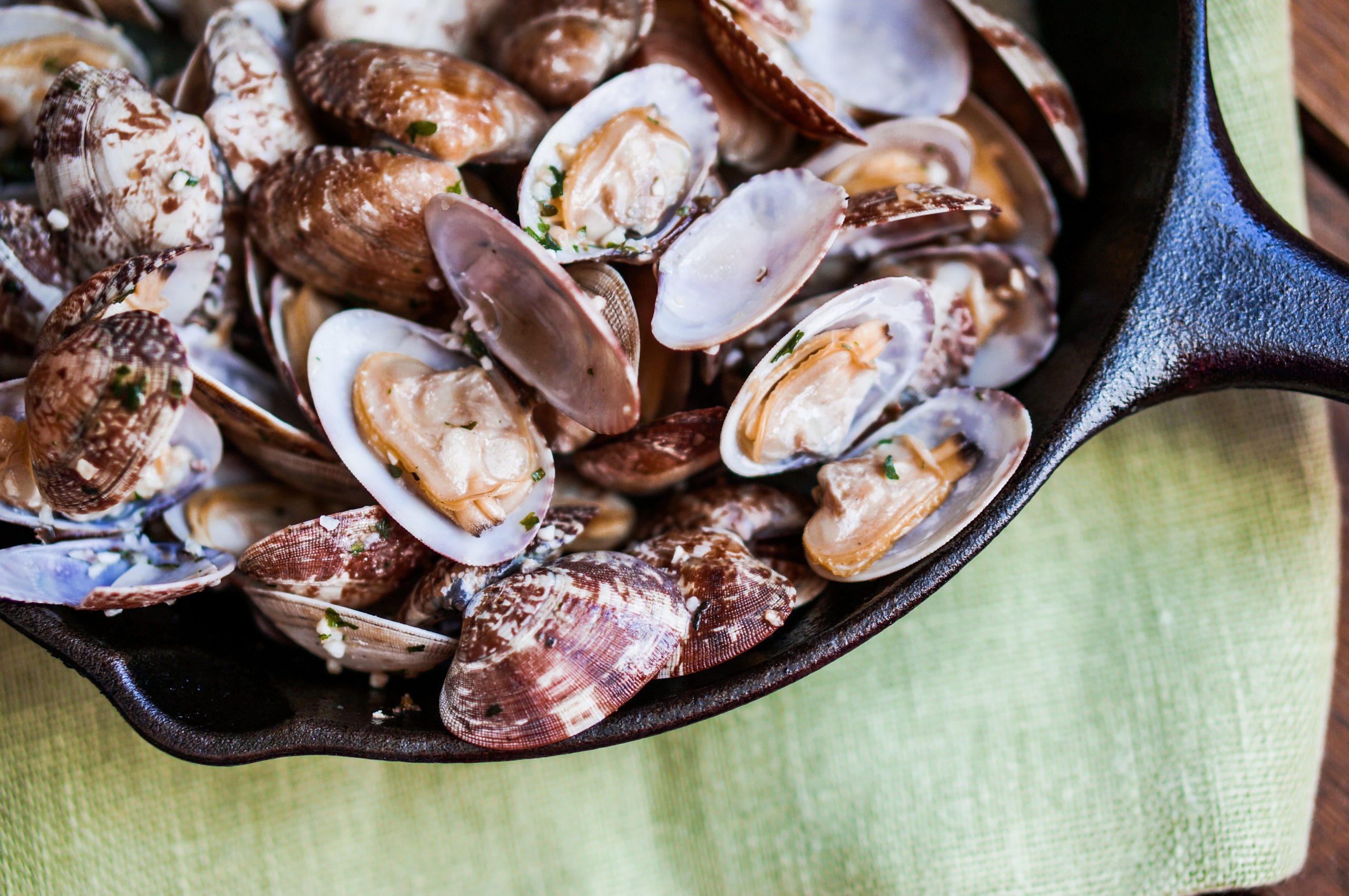
Fish and seafood are important sources of proteins while following the Mediterranean diet. Fish, such as sardine, are rich in omega-3 fatty acids that help to reduce inflammation. You can eat fish and seafood as part of your Mediterranean diet about twice a week. Some options include:
- Cod
- Tuna
- Trout
- Bream
- Sardine
- Salmon
- Herring
- Sea bass
- Mackerel
Seafoods are also rich in omega-3 fatty acids, examples include:
- Crab
- Prawn
- Clams
- Shrimp
- Mussel
- Oysters
- Octopus
- Periwinkles
Poultry and eggs
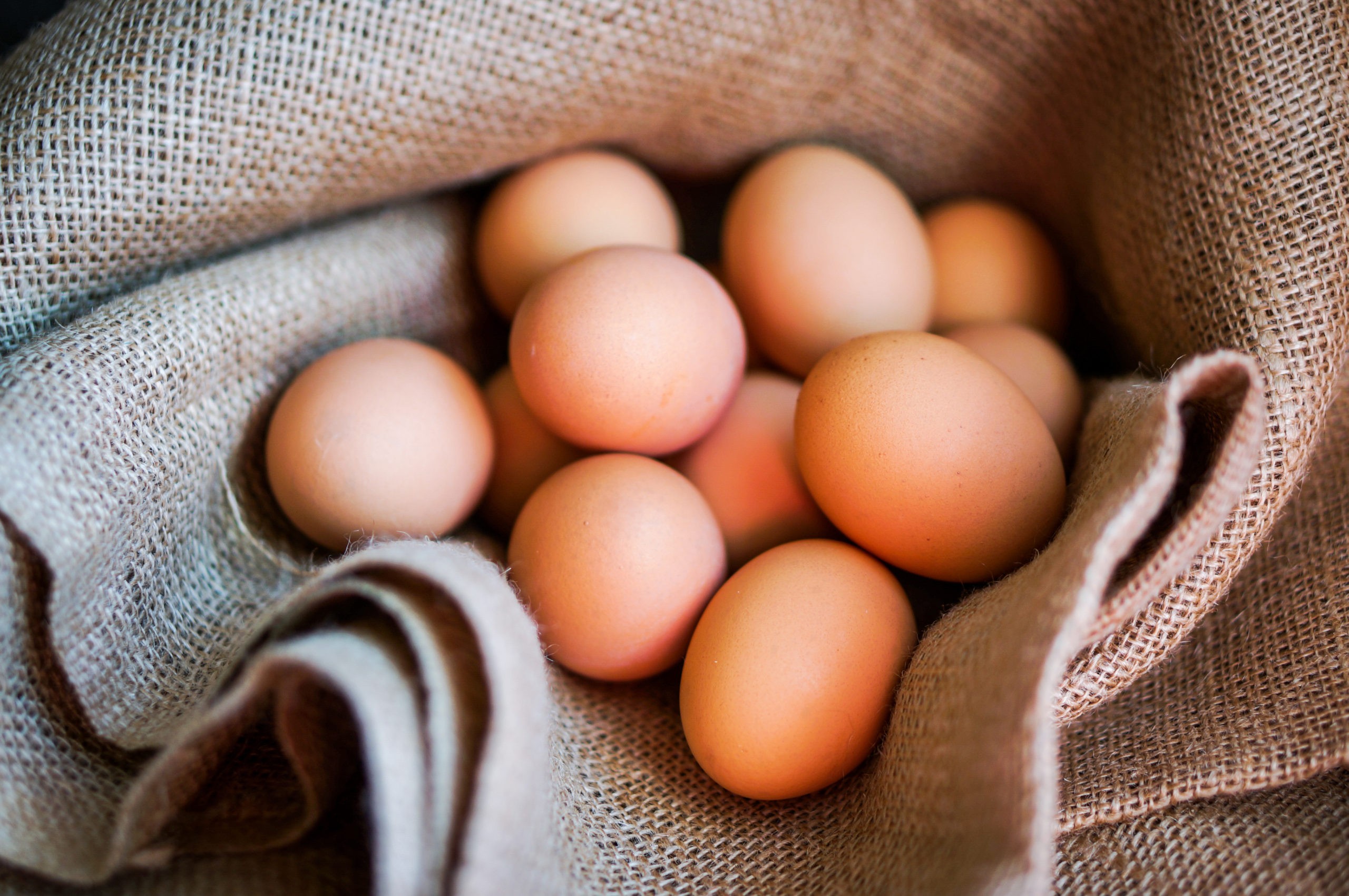
Poultry is rich in protein and minerals, such as magnesium, potassium, and calcium. They also contain vitamins, like vitamin B6. Eggs are rich in protein, iron, magnesium, cobalamin, vitamin B6, and vitamin D.
Despite their impressive nutrient profile, you should eat poultry and eggs in moderation because they’re also high in saturated fats. Experts say about four eggs a week is ideal.
Some poultry and eggs you can eat are:
- Chicken and eggs
- Goose and eggs
- Turkey and eggs
- Quail and eggs
- Duck and eggs
Dairy and Cheese
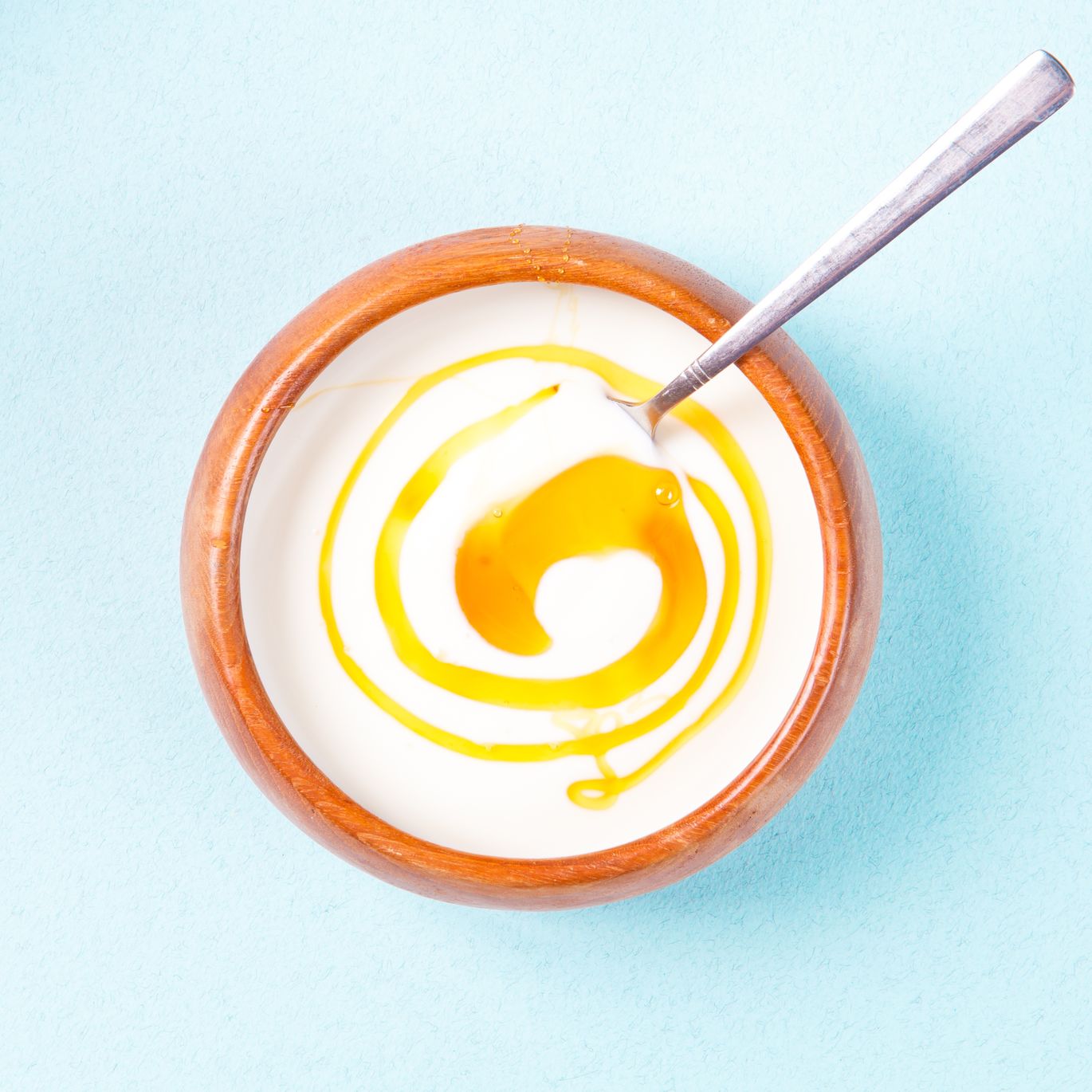
Dairy and Cheese
Dairy is a major source of calcium in the Mediterranean diet. You can have cheese or Greek yogurt in small quantities daily.
Red Meat, Saturated Fat, Added Sugar and Processed Foods
Red meat, saturated fat, added sugar, and processed foods, are at the top of the pyramid. You can eat these foods occasionally or not at all.
Things to consider when choosing the Mediterranean diet

The Mediterranean diet can improve your heart and gut health, as well as help you lose weight. However, before you choose this diet plan, here are some things to consider.
Lifestyle
Your lifestyle influences how well the Mediterranean diet works for weight loss and overall health. It helps to quit smoking to experience better lung health, which can be enhanced by following a Mediterranean diet plan. And being physically active is a huge plus.
This diet also encourages home-cooked meals, using fresh produce and some meal prep. You need to create time to cook meals, often from scratch.
You are also encouraged to share meals with others where possible. If this isn’t practical for you, you can practice mindful eating instead. Mindful eating can involve journaling meals, eating with no distractions (such as TV, computers, and smartphones), and eating at a slow pace.
Availability of food items
Diet plans can be easy to make but difficult to follow, especially when the required items aren’t available. You’ll see better results when you understand the role of each food item in your diet plan, and you can substitute them with available items around you.
The Mediterranean diet favors a diet abundant in whole grains, plant oils, vegetables, and fruits. A sample meal plan might not have the exact vegetables in your community, but understanding the different food groups can help you find substitutes.

This 3-Day Meal Plan is a sampling of the 100+ mediterranean diet recipes for weight loss that are in our 10-week Mediterranean Diet Weight Loss Program.
Tips for weight loss on the Mediterranean Diet
The amount of weight you lose and how easily you keep it off depends on several factors. For best results, it helps to get guidance from the professionals in your care team and to adopt a slow and steady approach that embraces lifelong changes instead of a quick fix.
Diet is just one part of the weight equation. Other things to control include your sleep, physical activity, stress levels, hydration, and habits.
1. Aim to eat a little less than you need
On its own, the Mediterranean diet plan isn’t designed for losing weight. In fact, you can gain weight on almost any diet if you eat more calories than you can burn.
To lose weight while following the Mediterranean diet, you must eat fewer calories than your body needs daily. You can estimate your calorie requirements with a calorie calculator. And use calorie counting apps to help you get an idea of how many calories each food type has.
However, you should not eat too little to avoid lowering your metabolism and encouraging your body to preserve your fat stores. Eating about 10-20% less than you need is enough to help you lose weight safely. A diet that’s too low in calories can make you feel hungry all the time and have cravings, which cause overeating and bingeing.
2. Get enough physical activity

Physical activity such as walking, gardening, swimming, and playing sports does your body a world of good. It may not help you lose much weight on its own, but as part of a holistic weight loss plan, it’s indispensable.
You can aim for 30–60 minutes of activity five days a week or 22 to 44 minutes daily. Experts also recommend two strength building sessions a week.
3. Plan your meals ahead of time
Planning your meals can help you stick to the nutritious food you want to eat, not the fast food that is available or easy to get. Some ways to plan your meals are:
- Sorting out mediterranean diet recipes for weight loss and learning how to cook new meals if necessary
- Having a menu or meal plan for the week
- Shopping for ingredients in advance
- Measuring your food portions
- Substituting food types for what’s available
- Cooking some meals in advance
4. Track your meals and progress
Tracking what you eat by keeping a food journal and also noting your weight loss progress can help you stay focused and notice the foods/habits that are more helpful than others.
For instance, you can notice foods that make you feel bloated or weakened and those that make you feel energized. You can also see how well your current diet is helping you meet your weight loss goals.
5. Limit or avoid processed food

The Mediterranean diet doesn’t forbid any food types but instead allows occasional red meat, sweets, pastries, and saturated butter. However, processed foods are likely to increase your risk of being overweight.
Processed foods are high in calories and low in nutrients. You can easily eat more than your entire daily needs in a single setting.
Also, processed foods can increase your risk of getting chronic diseases, including obesity, diabetes, and cancer. Added sugar increases your risk of illness
Keeping processed foods out of your diet can reduce your chances of overeating and help you meet weight loss goals.
6. Sleep 7–9 hours every day
Getting enough sleep helps to keep your hormones balanced and helps your body heal. Without enough sleep, hormones responsible for appetite like ghrelin can be raised and make you likely to overeat.
Experts advise that adults get at least 7 hours of sleep a day. And cool, dark rooms are generally better for a deep, restful experience. Keeping electronic devices away from your sleeping area and keeping regular sleep-wake hours can also help you rest properly.
7. Use herbs and spices liberally
Herbs and spices are a better option for flavoring your meals than liquid coloring, salt, or sugar. Although food dyes aren’t linked with any serious health issues (yet), they add zero health benefits and may increase your food cravings.
On the other hand, herbs and spices make your meals more delicious—and even have health benefits. Research shows spices like chili can help you lose weight, while onions and garlic contain compounds like quercetin that help you fight inflammation and improve your immunity.
8. Eat slowly, mindfully, and with your loved ones

Studies suggest that people who wolf down their food are 115% more likely to be obese than slow eaters. Slow, mindful eating, where you savor the taste of meals and focus on your plate, can help you eat less and weigh less.
Also, the Mediterranean diet encourages you to eat with loved ones, which can boost mood, reduce loneliness and encourage you to spend more time at the dining table. This can make you less likely to attempt comfort eating, which can lead to unwanted weight gain.
9. Choose long-term change, not quick fixes
Most weight loss plans fail. Studies show that up to 80% of people who lose weight can’t keep it off for up to one year. The main reason? Quick fixes and approaches they can’t sustain in the long run. Instead of that, choose a long-term lifestyle choice you can stick to.
Give yourself enough time to get results and stay committed even if you meet hiccups along the way.
10. Consider getting professional help.
Weight loss is harder for some people than for others. Apart from the inconvenience of not fitting into your favorite shirt, it can also affect your health.
Professional healthcare workers such as your doctor, nurse, or dietician can help you get additional support toward meeting your goals. This can be particularly helpful if you have plenty of weight to lose or existing health conditions.
Conclusion
No diet can guarantee overnight weight loss success. But the Mediterranean diet can help you achieve a steady loss of excess weight if you follow it properly.
You can enjoy various delicious meals and the health benefits of a tested, trusted, flexible plant-based diet while taking steps to help your body burn excess fat stores.
Proper sleep, a slight calorie deficit, physical activity, and mindfulness during meals can enhance your chances of success.
If you have a lot of weight to lose or existing health conditions, getting your care team involved is a good idea.








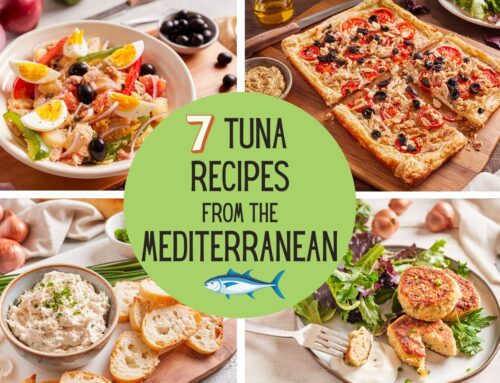
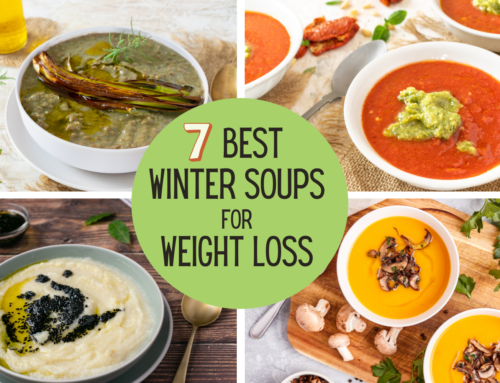

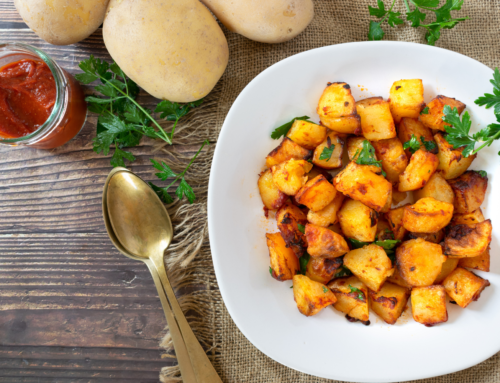
I am willing to try this way of eating.